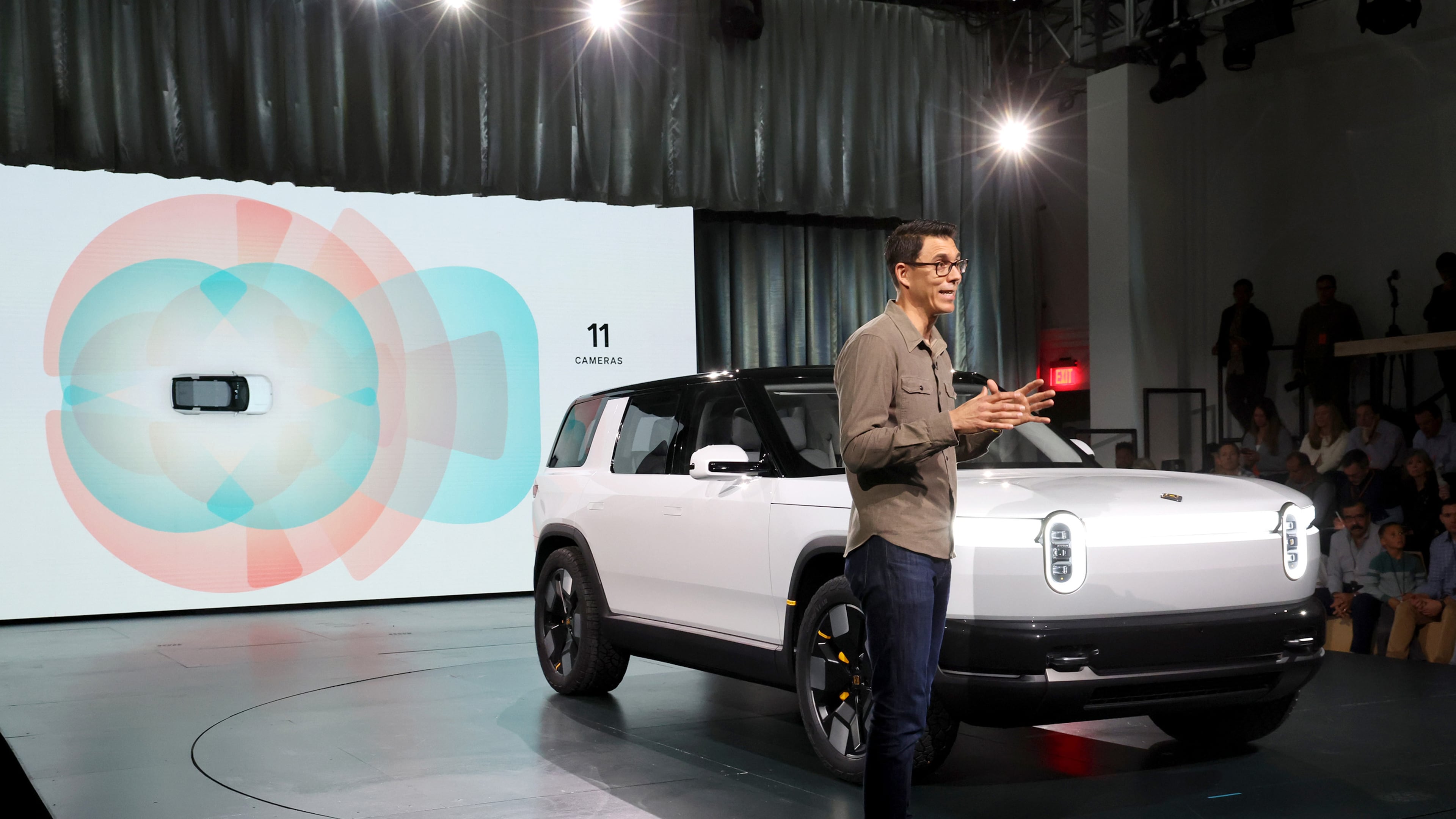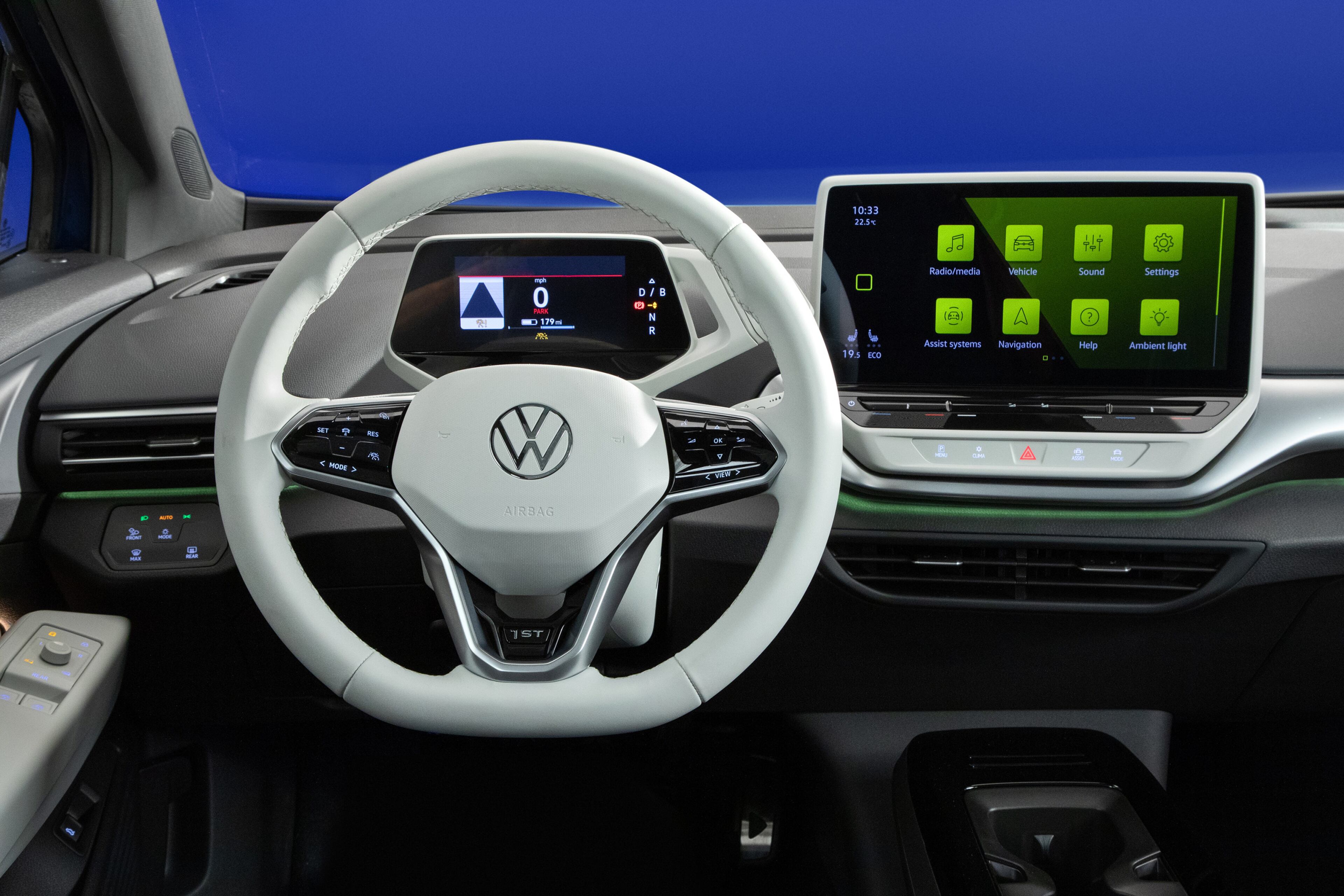VW’s $5B Rivian investment could help support Georgia electric vehicle plant

Electric vehicle startup Rivian and German automobile giant Volkswagen Group announced Tuesday a joint venture to develop EV software technologies, a potential $5 billion partnership that Rivian said will provide the company the capital it needs to grow and launch its planned Georgia factory.
The deal is a financial boost for Rivian, a company that has delivered award-winning high-performance EVs, but has struggled with supply chain issues and seen its cash pile shrink. The company has slashed costs and jobs as it works to reach profitability and boost its stock price.
But Tuesday’s announcement could be a watershed day for the California-based company and VW. One that could help Rivian scale and reach profitability faster and help both companies develop next generation EVs at lower costs.
In March, Rivian put on hold its plans for a $5 billion factory an hour east of Atlanta. Rivian has said it intends to honor its commitment to build the Georgia plant, but paused the project and announced plans to shift initial production of its new lower priced EV, the R2, to its factory in Normal, Illinois.
Volkswagen Group plans to invest an initial $1 billion in Rivian, taking an equity position in the startup and becoming one of the company’s largest investors. The planned partnership includes $4 billion in additional investments through 2026, and would result in the developed software technologies being used in both companies’ future EVs, according to a news release.
Rivian CEO RJ Scaringe said Tuesday that he remains committed to building the Georgia factory as the company scales production, and he said the joint venture with Volkswagen will help that endeavor.
“This partnership does provide really a capital road map to not only secure and support the launch of R2 in Normal but also support the launch of that mid-size platform in our Georgia facility and our path to positive free cash flow,” he said.
He went on to say that, “Knowing that we have a partner that’s not only interested in our success, because of the technical partnership, but also because of their equity ownership in us, is really helpful.”
The Rivian-VW joint venture will develop what the companies called “next generation software-defined vehicle (SDV) platforms.” SDVs are vehicles that can be updated over time using software improvements.

Rivian’s technology will be the basis of that software platform, which will be used by both companies in new vehicles to be developed in the coming years. Volkswagen has struggled to develop EV software.
Under deal terms disclosed in a letter to shareholders, Volkswagen will provide its investment in a mix of convertible notes, equity and investments in the joint venture through 2026, contingent on Rivian meeting certain milestones.
Oliver Blume, CEO of Volkswagen Group, said those milestones are “connected to technical proof points,” and the partnership will include all aspects of their vehicles’ software platforms. He said that includes infotainment systems, autonomous driving functions, software connectivity and how all of those systems receive updates.
“(This partnership) is to speed up and transform quicker from our traditional software architecture to an architecture which is designed to focus on a software-defined vehicle,” Blume said.

The announcement not only adds another potential automaker to invest in Rivian, but it is a vote of confidence at a time when the startup is focused on shoring up its balance sheet and becoming a profitable company. Rivian’s stock price was up nearly 50% in after hours trading as of about 6:30 p.m. EDT Tuesday.
Rivian postponed its Georgia factory construction plans as a cost-cutting measure, saying the move would save more than $2.2 billion in short-term development costs. Rivian plans to start production of its R2 crossover at its Illinois plant in 2026, but Scaringe has said Rivian would still need to build the Georgia factory to have capacity to scale production.
In selecting Georgia for its second factory, which is expected to employ 7,500 workers, state and local officials offered a $1.5 billion incentive package. Most of the incentives, however, only accrue to Rivian if it collectively meets 80% of its promised jobs and investment by the end of 2030 and maintain those metrics through 2049. Otherwise, they’d be subject to claw back measures.

Rivian reported a $1.4 billion net loss for this year’s first quarter, larger than its $1.3 billion loss in the first quarter of 2023. Rivian ended March with nearly $6 billion in cash and cash equivalents.
The joint venture will exist as a separate entity helmed by two CEOs: one from Rivian and the other from Volkswagen. Rivian is expected to contribute to technology development, while Volkswagen is financing the endeavor through equity investments in Rivian.
VW said it plans to invest $2 billion in the joint software company, while the other $3 billion would be used to purchase equity in Rivian. Rivian Chief Financial Officer Claire McDonough told investors during a Tuesday evening call that the first $1 billion investment from Volkswagen will be in the form of a note that converts to stock.
Amazon currently ranks as Rivian’s largest shareholder. Amazon is also a customer that has purchased 100,000 electric delivery vans. Cox Enterprises, which owns The Atlanta Journal-Constitution, also owns about a 3% stake in Rivian.
Scaringe said this partnership will benefit both Rivian and Volkswagen, which will not only improve his company’s financial standing but both companies’ software offerings within their vehicles.
“The opportunity to apply (Volkswagen’s) scale to achieve meaningful cost savings across our building materials and across our business coupled with the ability to drive acceleration of this technology into more products on the Volkswagen side, it really is highly complementary,” he said.


